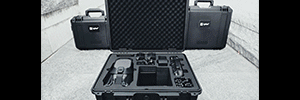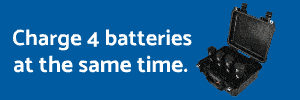You are using an out of date browser. It may not display this or other websites correctly.
You should upgrade or use an alternative browser.
You should upgrade or use an alternative browser.
Question re Minis and RID
- Thread starter Dbez1
- Start date
Directly from FAA's own site -->https://www.faa.gov/uas/getting_started/remote_id
Seems that the highlighted is the important factor... meaning, if not required to register the UAS the RID regulation doesn't apply.

Seems that the highlighted is the important factor... meaning, if not required to register the UAS the RID regulation doesn't apply.

Thanks Slup. That’s the way I interpret it also. Now I’m wondering if recreational pilots who have CHOSEN to register their Mini are required to get a RID module? According to the FAA wording, I’m assuming NOT required but I’m no lawyer. My friends are not registered but the answer might clarify this issue for others on the forum. Thanks again.
Last edited:
The best way to remember this is that RID is tied to registration. So if a drone doesn't need to be registered (such as <250g recreational only drone), it does not need RID.
Also, they do not have to fly at a FRIA. They can fly anywhere they're allowed to under FAA regulations.
One point of confusion is that if someone were to be flying a <250g drone with Standard RID, that will be broadcasting, whether they are flying under recreational rules or non-recreational rules. RID systems (Standard or Module) must be tamper proof. That means they cannot be turned off.
So even though someone may not be required to broadcast RID, if they have a drone with Standard RID, they will not be able to turn it off.
Also, they do not have to fly at a FRIA. They can fly anywhere they're allowed to under FAA regulations.
One point of confusion is that if someone were to be flying a <250g drone with Standard RID, that will be broadcasting, whether they are flying under recreational rules or non-recreational rules. RID systems (Standard or Module) must be tamper proof. That means they cannot be turned off.
So even though someone may not be required to broadcast RID, if they have a drone with Standard RID, they will not be able to turn it off.
Good point but need clarification on one item please: RID systems (Module) is that the external RID like the Dronetag modules? You said tamper proof/cannot be turned off [in flight], does that mean they must be somehow integrated with your drone or able to know when they are "in flight?" If these external modules have received FAA approval, does that mean their proper and legal operation have already been certified? Does the pilot have to take any more steps to ensure these module are "legal" for use on their non-RID drones?The best way to remember this is that RID is tied to registration. So if a drone doesn't need to be registered (such as <250g recreational only drone), it does not need RID.
Also, they do not have to fly at a FRIA. They can fly anywhere they're allowed to under FAA regulations.
One point of confusion is that if someone were to be flying a <250g drone with Standard RID, that will be broadcasting, whether they are flying under recreational rules or non-recreational rules. RID systems (Standard or Module) must be tamper proof. That means they cannot be turned off.
So even though someone may not be required to broadcast RID, if they have a drone with Standard RID, they will not be able to turn it off.
Also for reference, where do I find these details in the FAA rules and regulations? I mentioned it before but since have not been able to find it in writing. If you know (and it applies to both standard and module) please let us know; thanks.
I fly FPV freestyle drones as a hobby and I will not need RID on my <250g FPV drones..... for now
As the pilot I don't think you will have to do much more than purchase the module because any modules that do not work as intended will not be allowed for sale in the U.S.
As the pilot I don't think you will have to do much more than purchase the module because any modules that do not work as intended will not be allowed for sale in the U.S.
What does that mean "not be allowed for sale" in the US...are you saying if you can buy a module, it has been approved? You won't need to lookup the device on FAA to check for yourself because it wouldn't be for sale if it were not approved?I fly FPV freestyle drones as a hobby and I will not need RID on my <250g FPV drones..... for now
As the pilot I don't think you will have to do much more than purchase the module because any modules that do not work as intended will not be allowed for sale in the U.S.
I guess my real question is if it is FAA-approved, the pilot is not responsible for the data it transmits, how it transmits, when it transmits, etc. correct? We don't need to check the accuracy, the range, the consistency, the contents....just follow the instructions, hook it up, then fly.
Yes accuracy, range, and consistency are the responsibility of the manufacturer the govt will set the standards that all manufactures Must follow. equipment that transmits data must also be approved by the FCC in order to be sold in the U.S.
I understand all devices require FCC to be sold in the USA but that's not my question.Yes accuracy, range, and consistency are the responsibility of the manufacturer the govt will set the standards that all manufactures Must follow. equipment that transmits data must also be approved by the FCC in order to be sold in the U.S.
Does an external RID device need to be on the FAA-approved list before it can be sold in the USA? And if so, where are you reading this?
My concern is there will be lots of RID devices for sale that don't get FAA RID compliance but the customer may not know to check a government approval list; a list that may not be timely or accurate.
I agree the government has set the standard that all manufacturers must follow "in order to gain compliance" but for sure, there will be RID modules and even standard RID that won't comply but that won't stop it from being sold in the US, correct? Does the government stop you from selling a drone here in the US because it doesn't have standard RID? No; how can they when a module is an acceptable alternative?
Not trying to be argumentative but this can be complicated and confusing for the ordinary consumer and we are months away, how are customers and merchants suppose to legally comply? Again, I will go back and re-read the documentation and refresh my knowledge.
I agree the manufacturer of a device which complies is responsible for how they work. To my knowledge, the approved dronetag does not prevent a drone to which is it attached from lifting off if the module malfunctions. I don't have a dronetag so maybe I am wrong; please correct me.
FLDave
Well-Known Member
It's always complicated to purchase "approved" items. There will always be shady sellers. It is the responsibility of the buyer to take the "buyer beware" approach.
The add-on module does not link the the drone firmware and may be moved as needed to attach to another drone. So, an attached module cannot prevent a drone from taking off. The attached module cannot act like the onboard RID features.
The add-on module does not link the the drone firmware and may be moved as needed to attach to another drone. So, an attached module cannot prevent a drone from taking off. The attached module cannot act like the onboard RID features.
They would indeed have to be on such a list but that list would be easy to obtain I am building my first FPV drone <250g so no regs I have been doing a little research on the subject for building a cinelifter in the coming months
Last edited:
MARK (LI)
Well-Known Member
Yes, any drone used for part 107 flight requires RID whether or not it is less than 250 grams.OK.....Mini 2 does not have to be registered, because it is under 250 grams....however if you are using it under 107, does it not have to be registered, consequently making it subject to RID rules?
yep any drone you plan to use commercially will need rid but I wouldn't worry much the modules will be available probably terribly overpriced at firstOK.....Mini 2 does not have to be registered, because it is under 250 grams....however if you are using it under 107, does it not have to be registered, consequently making it subject to RID rules?
Similar threads
- Replies
- 10
- Views
- 2K
- Replies
- 8
- Views
- 2K
- Replies
- 37
- Views
- 4K
- Replies
- 18
- Views
- 4K
DJI Drone Deals
1. Mini 2
2. Mini 3 Pro
3. Mini 4 Pro
4. Air 2s
5. Air 3
6. Avata 2
7. Mavic 3 Pro
8. Mavic 3 Classic
2. Mini 3 Pro
3. Mini 4 Pro
4. Air 2s
5. Air 3
6. Avata 2
7. Mavic 3 Pro
8. Mavic 3 Classic











